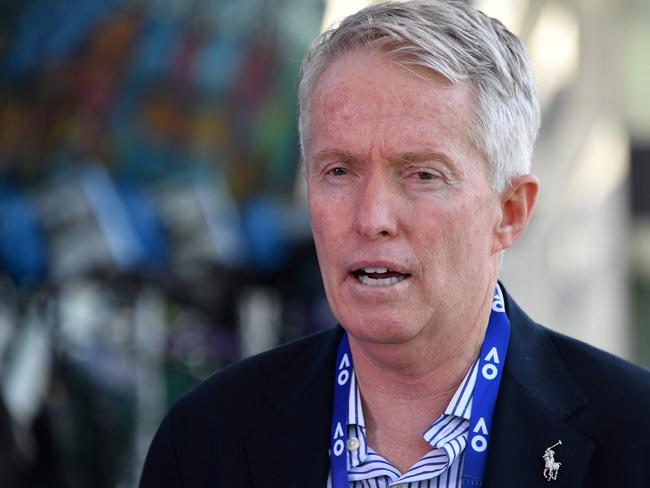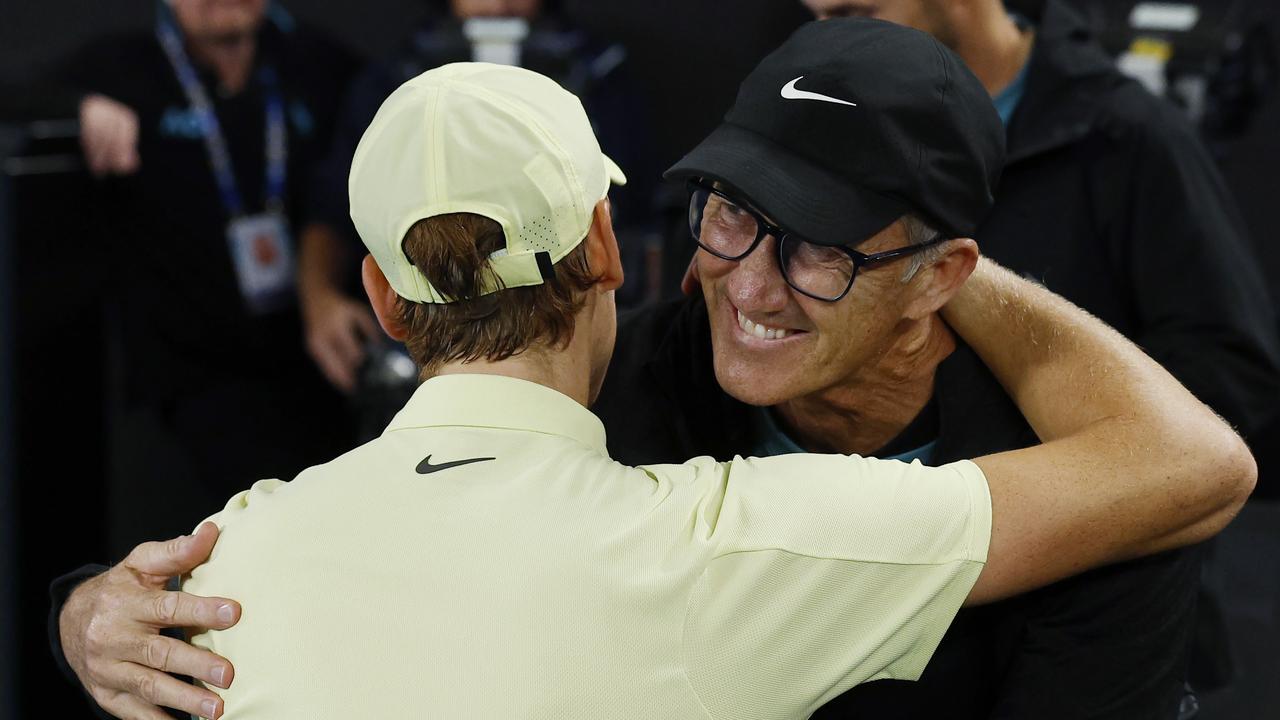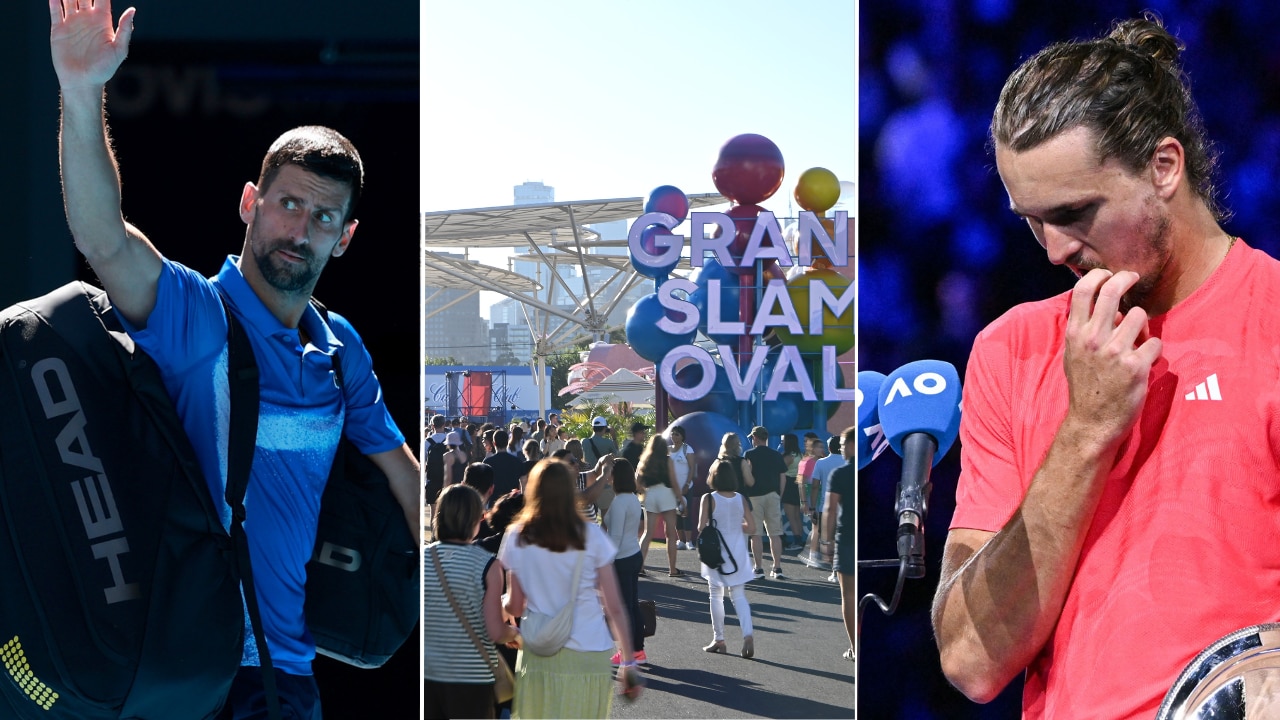Tennis boss says Australian Open will stay in Melbourne in 2022 but players won’t want two-week lockdown
Tennis players are moving around the world without restrictions and may demand similar treatment for next year’s Australian Open.

Tennis Australia has gone up to $40m in debt as a result of hosting a delayed Australian Open hit by COVID-19 restrictions earlier this year, but has downplayed fears of losing the 2022 tournament overseas.
Yet while tennis officials are confident next year’s Open will take place as usual in mid-January, they have turned up the pressure on government and health officials to ease quarantine and lockdown restrictions on players arriving in Australia from overseas.
Ongoing international border closures and continued government requirements for inbound visitors, potentially even including fully vaccinated tennis players, have been cited as reasons for rumours emerging that a Gulf city state such as Doha or Dubai could replace Melbourne as the venue for the grand slam should players refuse to travel to Australia.
Tennis Australia chief executive Craig Tiley said Melbourne would still host the Open and a slate of lead-in tournaments around the country were being planned, but also said players on the global tour were already moving from country to country to various tournaments without being locked down, and will want similar treatment in Australia.
“We’re going to be here in Melbourne, we are going to make it work, it’s going to be in January,” Tiley said at a SportNXT conference launch in Melbourne on Monday.
“We’re going to find a way to get the players here who are currently travelling the world in a bubble. We are the only country where quarantine is required. We’ve got to find a way to manage that and we will.”
“It is contingent obviously on having a modified environment as it relates to quarantine because the tennis athletes have been travelling around the world in a bubble and have been doing it in a safe way and been able to play in front of crowds. They will expect that to continue.”
Australian Grand Prix boss Andrew Westacott said he was also confident of the Melbourne race going ahead in November despite potential quarantine issues. “I’m always confident. That’s what we’ve got to do, find solutions.”
Competitors at the delayed Australian Open in February were required to isolate in hotels for two weeks, but were allowed out to train for five hours per day in a bubble-style environment.
But with 80 per cent of the women’s tour, including Australian star Ash Barty, having now received COVID-19 vaccinations, and the men’s tour moving towards that figure, players have enjoyed freedom to travel between countries and then sticking to a routine of shuttling between tournament venues and their hotels.
“One thing we have learnt with this virus is there’s a lot of uncertainty. But tennis players … have been travelling around the world in a bubble. They’ve stayed within their environment … and don’t interact with the public. And if you can create an environment like that, that is acceptable to government then you’ve got a working solution. If we cannot then we will look at our options,” Tiley said.
“The two-week hard lockdown doesn’t work for athletes, not just tennis players. So I don’t know of any Formula One (drivers), cricketers or any athletes who can sit in a room for two weeks. I can’t see that happening. So we rely on the government and health policy makers. We are still a long way off and have to find a way for athletes to meet the requirement of the health officers. It is a hard one to predict.”
This year’s delayed tournament, played before restricted crowds and with less travellers from interstate and virtually no overseas visitors also meant Tennis Australia’s finances took a significant hit.
Tennis had one of strongest balance sheets in Australian sport but was forced to spent all of its $80m reserves. Tiley said the debt the organisation had taken on, a mixture of government and commercial bank lending, was less than half the former reserve figure and that Tennis Australia had also slashed its spending.
Staff have taken pay cuts of 20-30 per cent and savings such as the $20m previously spent on international travel have been found. Sponsors such as Rolex and Kia have also entered new and more lucrative deals, but the $40m spent on biosecurity and other player measures this year would have a financial impact.
“We had a healthy cash reserve and we have depleted that and we have also taken some debt. We may extend that. We will have to find a solution.
“There is going to be less cash available … and we are working through the ways we will deal with that as an organisation. We had healthy cash reserves built up, sources of revenue outside of the Aus Open and we have great partners that have stuck with us.
“That is why it is so important for us to run the event. Not running the event leaves a much bigger gap and economic gap.”



